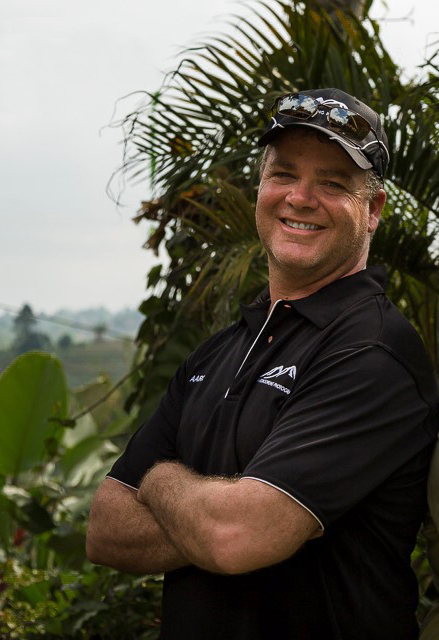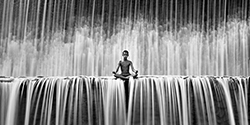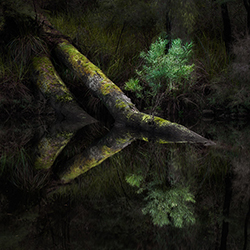
|
|
|||||
|
Featured Photographer, December 2016: Aaron Dowling
We are happy to have Aaron Dowling as our featured guest photographer this month. We appreciate that he gave us some of his time and generously shared his beautiful photography with us! Please visit his links to see more of his work, and to let him know you enjoyed this interview. :: How did you get your start in photography? This isn't actually an easy question to answer. Like most people, I started taking photos at a very young age, of course these images were about capturing moments with friends and family and I would have never considered it photography. I did not consider all of those years' as photography, as there was no intention to understand or learn about what I was doing, instead I'll call it point and shoot with a film camera. In the early 2000's I started taking some images with purpose and intention. I would look at a scene and think about what I actually wanted to achieve, but this was for fun, and I did not consider at the time that I was learning the craft of photography, although I was, so this was the true start. It wasn't until I was planning a trip back home to Canada, from Australia that I purchased a DSLR and starting immersing myself into photography. I decided at that point that I wanted to start learning the art of photography and capture the scenery I had grown up playing in. From the moment I started I knew it was Landscape Photography that was my passion and I've been growing my skills in that genre ever since. :: You have an engineering background, and your website mentions the technical side came very easy to you. What did you find to be the most challenging about developing the artistic side? When we first start learning photography we're bombarded with opinions on what we should and shouldn't do, the compositional rules of photography, what a proper exposure is and a myriad of rules designed to produce good images. So we head off into the landscapes keeping all of these in mind and start producing images. I think the key word here is "producing", we blindly follow rules and everything we have learned without consideration, for the most part, about what it is that excites us about what we're photographing. I don't want to discount all of that learning, as it helps us to gain understanding of photography, and gets us on our way and gives us some confidence. The issue that arose for me is I was chasing the perfect technical shot, and all of my work started to look the same. It wasn't until I made a conscious decision to disregard everything that I had learned (the rules), and instead focus on what it is about a place that excites me. I stopped looking at the whole scene and started to focus on the elements that interested me and made me feel an emotional connection. Then I started using the equipment and understanding I had to capture that emotion, with a complete disregard for any compositional or other rules that I had learned along the way. I believe the artistic side is in everyone, we all see things differently, which is what makes photography great, we just need to have confidence in ourselves and our vision. :: Being technical, the Photoshop side of photography probably camera easier to you. What challenges do you think most photographers learning the subject find with the program? How have you helped with your tutorials? You are correct in saying that Photoshop came relatively easy to me. I actually starting using Photoshop before I got into photography, I've been using it now for about 18 years. When I first started teaching Photoshop I had the mindset that it was fairly easy, but this was an initial mistake, what may be easy for you isn't always easy for others. So by teaching Photoshop I was better able to understand what it was that made using the program difficult for others. There are two things that typically make learning Photoshop challenging for many and they are:
I don't necessarily believe that the current tutorials I create will teach you all the ins and outs of Photoshop. Instead they are short tutorials that show how to achieve specific results when you're faced with specific challenges. Having said that, my aim in any tutorial I create is to clearly explain the challenge, the thought process behind tackling the challenge, then why and how we use certain tools to tackle those challenges. With this I hope to reinforce those techniques and hopefully have the viewer be able to understand how they may use those techniques in other aspects of their workflow. :: Photography, especially outdoor nature photography has really taken off the past 10 years. It seems that finding or discovering new places to shoot inevitably leads to that place becoming the next "hot spot" Leading tours, and also pursuing your own work requires to an extent you share these locations. How do you find a balance with sharing and not causing a photography overload to an area? One of the great things about my job is getting to share some of the most beautiful places with others and something that I take great pleasure in. When you mention photography overload, the first thing that comes to mind is an impact on the natural environment. Of course this is something that we as photographers and everyone else for that matter need to consider when we visit these locations. My thoughts are rather then not showing someone or a group an area, I prefer to educate on a sustainable code of conduct, and hopefully that will be passed forward. It's really a catch 22, this world is for everyone to enjoy, it's just a real shame that some have no regard at all for nature, at least when they're with me I have some control over the footprint we leave. :: In the same vein, with so many photographers shooting the same locations, often on the same day how do you look to stay different and original, or is that a huge deal for you? Capturing that iconic image is what's first and foremost in most photographers' minds, and I can understand that. So when I visit or take a group to such a location I do encourage people to get that shot, essentially get it out of their system and then move on. To often I will see photographers gravitate to one spot and sit there for the rest of the time at a location, only to have 100's of shots of the same spot in slightly different light. This does give you many different options, but at the end of the day you really only end up with 1 maybe a couple of shots you'll edit. Instead I encourage you to get your shot, which I will as well, and then move on, think about things differently, look for those things that catch your eye and narrow your focus. This is most often where I will find my favorite images and allows me to take shots that no one else has. :: What was the scariest thing you have had happen to you on a shoot? I don't often have scary things happen while I'm out on a shoot. I don't believe that risks to your health are necessary in capturing great shots, nor is it worth it, although my wife would disagree with me she believes I take a lot of risks. There is a beach in the South West of West Australia called Injidup Beach, it's one that I love to photograph for many reasons. The surf in this area of the state can be very unpredictable. On two occasions I have got myself into predicaments while shooting there, this is one of them. I always spend 10 or 15 minutes watching the surf before getting anywhere near it, as I did on this occasion, to give myself some confidence that I'm not going to get hit by a rogue wave. I had been standing on a set of rocks for about 20 minutes shooting, always looking out to see what the waves were doing, and nothing was coming anywhere near me. The light started to hit the scene and distracted me for a couple of minutes, my wife who was there with me at the time started yelling at me, I turned to look at the ocean and there was a swell coming in that was easily 3 metres over my head and looked like a wall moving quickly. I didn't have time to think, I grabbed my camera and ran and got away just in time. I was thankful my wife was with me, my heart skipped a few beats that morning. Funnily enough, I stood with her for a few minutes after that and fired off a few shots and got one of my favorite shots of the beach. Reinforcing that you don't have to take risks to get good shots. :: What is your favorite piece of non-photographic gear? Hmmmmm, who would have thought the shortest question would be the hardest to answer. Probably my flashlight (torch in Australia). This helps get me into and out of locations in the dark. It allows me to scout a scene before the light appears and can even come in handy illuminating a scene to focus or even to light a scene for Astro Photography. :: How does the social media circus play a part in how you run your business? How do you stay out of what seems to be an endless amount of war on words over processing, composition stomping, and whatever else? Are there any topics you can't seem to stay away from when it comes to photography debates? Well, I don't think there would be many photographers today that wouldn't say Social Media plays an important role in their businesses. Yes, we can spend far too much time scrolling through Facebook, Instagram, Google+, 500px, etc. But they are very important in my business, and I've embraced some, more then others. The great thing about the internet and social media is it allows you to share and connect with people all over the world, which would be extremely difficult otherwise. I do notice all of the war of words in photography circles on editing, equipment, etc, etc, etc... I usually stay as far away from these conversations as possible, and if I do say something it's usually words of encouragement. For me photography is an art and is very personal, and there is no right or wrong, only what's right or wrong for us. I do find it very sad that some feel the need to put restrictions on what people should do in their art. When entering comps or submitting to travel publications, or documentary photography there are rules and they should be followed, otherwise go your hardest. My favorite saying is: "The only limits in our photography and creativity are those we put on ourselves". I tend to stay away from all of the debates, instead offering encouragement to those striving to push the boundaries. Be true to yourself, no one else. :: When you're visiting a location for the first time, how do you plan? How much of your shooting is spontaneous and unplanned? If I am visiting a location for the first time, particularly on an overseas trip I will research the location heavily. This research will be from many sources including images on social media. This is more to give me an idea of what to expect then it is to try and get similar images. So, typically I will choose to visit 50-60% of the locations I have researched, I will then look at sunrise and sunset times and directions of light to decide which locations would be best for the type of photography I want to achieve at those times of day. I then leave about 40-50% of my time to freelance, unplanned. I will typically talk with locals or guides describing the types of things I want to see or simply just come across them. I don't approach any scene planned or unplanned with a pre-conceived idea though of exactly what I want to photograph, instead I choose to arrive 1-2 hours ahead of time to scout and just sit and absorb the area before taking any shots. :: I love your image, ‘At-Peace' can you describe how that moment evolved, and how your vision of a finished image played into how you dealt with that scene. The whole afternoon at this location in Bali, Indonesia was a lot of fun actually. I had 4 young men from a local village playing on the waterfall and doing a lot of really fun things with the water, and this amazing back drop. After about 30 minutes or so, playing around the landscape photographer in me kicked in and I wanted to get the slightly long exposure of the water moving. I thought I would keep a sense of scale by asking one of the boys to stay in the shot, and I also wanted him to portray a bit of his culture at the same time. So I asked him if he could sit dead still and pose as if he was meditating on the waterfall. I took about 6 shots all at 1 second, to give just enough movement to soften the water, but not so long that he would move. One of the keys to the scene was the time of day, I wanted the light coming from behind the waterfall, so it was still casting light on the boys, but not casting any light on the waterfall, which made shooting much easier and helped them stand out against the water. :: I hear a lot of talk about how certain locations are ‘over-shot' and photographers shouldn't go there. Does this mindset play into your photography and you prefer to go elsewhere, or do you find different challenges with popular places? This is a great question. I often hear photographers say that they don't want to photograph particular locations because they have been done to death, and yes with social media and the internet it can certainly feel this way. But, if we strive to be true to ourselves and use our vision, blocking out everything we have seen in the past, we can create very unique work at these locations. Many of my favorite images have been shot at extremely popular locations, but no one would recognize the place. The key for me is blocking out the wider landscape and focus on elements of the landscape that intrigue and excite me. I'll still capture the iconic image, but I move on from this relatively quickly. I also do love to take shots at places no one else can be bothered shooting and showing its beauty. :: Do you work with any other kind of photography other than landscape and travel? If so, what challenges and creative issues do you deal with there that are different than your main work. In my early days of photography, I played around a little more then I do now. This was more related to understanding techniques used to capture images, then it was in the subjects I was shooting. I believe it's important to understand the techniques used in other genres of photography and then translate those techniques into your area of interest, in my case landscape and travel. So, I do carry a speedlight with me when I travel, it's surprising some of the amazing effects even in landscape photography that you can achieve with a speedlight. This also applies to the editing side of photography, there are many techniques used in other genres of editing that can be very useful in landscape editing. So, I don't really do any work outside of Landscape and Travel these days as they are what I am truly passionate about, instead I just appreciate the amazing work others do in those genres. :: Your bio mentions the importance of photography competitions to developing the craft. Can you explain this a little more? What do you think the benefits of competition are, and also the possible negatives to competition? Photography competitions whether they are local camera club competitions, regional, national, international or professional competitions offer many benefits to photographers:
Of course there can be some possible negatives. But these negatives are more about personal pride, then they are concrete negatives. Photography is an art and not a science, thank god, and this means that everything is subjective. The most important thing to understand is that if your images don't do as well as you had hoped, don't take it personally. As I mentioned it's a subjective field, and as long as you love your work, it doesn't really matter what a couple of judges say, take what you want out of the feedback. I had a very prominent and extremely well regarded photographer tell me that one of his images scored one of the highest distinctions possible in a competition, and then score below professional standard in another, so don't take them to heart. :: What do you think the biggest misconception of a travel photographer is? What is the one aspect of the job you wish that everyone knew? There aren't any misconceptions are there? You get to stay in 5-star hotels everywhere you travel, you're eating the best food in all the countries, you get to see the most incredible locations in the perfect light, and there's nothing better then travelling the world. None of what I said above is true of course, unless you're a wealthy travel photographer. But sleeping in homestays throughout Asia, trying what looks like dodgy cuisines, chasing light rather then it appearing for you is all part of what makes travel so great. The hardest thing for me, especially early was all the time spent away from my wife, who was still working a 9 to 5 job. She has since joined me in the business and we travel together now, which has made the travel that much better. |
"Work hard, take risks and follow your dreams, don't let anyone tell you that you shouldn't do it. Also, stay true to yourself, shoot what excites you and don't expect things to happen over night. Most importantly, don't put limits on your photography and creativity and don't let anyone tell you otherwise."
Photographer Spotlight Interviews
|
|
 |
Other Cool Stuff→ Past Workshop Photos → 72dpi.com → How-To Articles → Photographer of the Month |
 |
Contact Us→ Contact Us → About Us → Site Map |
© 2009-2024 Aperture Academy, Inc.









